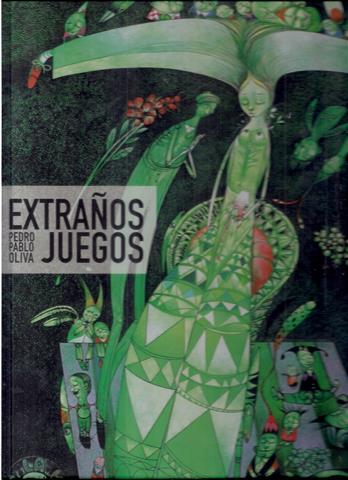Estudio Pedro Pablo Oliva

FICHA TÉCNICA
Book-catalogue on Cuban art
Edition: Estudio Pedro Pablo Oliva, 2017
General Coordination: Silvia Oliva
Editorial and Research Team: Leonora Oliva, Silvia Oliva, David Horta
Proofreading: Ángel Luis Peñate, Araceli Sainz
Photography and Image Processing: Rodolfo Martínez, Ricardo Elías,
Jeremy Scott, Roque, Pedro Luis Dorta, Pedro Pablo Oliva Rodríguez,
Ernesto Javier Fernández, Fermín Portilla, Silvia Oliva, Leonora Oliva,
and all the people who gave evidence of the life and work of PPO
Diseño: Luis Alfonso
Texts: Hector Ánton Castillo, Jorge de la Fuente, Hortensia Montero,
David Mateo, Ramón F. Cala, Amalina Bommín, Dagoberto Valdéz,
Nelson Herrera Ysla, Pedro Pablo Oliva, David Horta
Printing: Selvi Artes Gráficas
ISBN: 987-84-946480-6-9
Spanish
230pp. / Illus.
Cover: Penélope o El extraño hombre que enamoraba con un pez (Penelope or The Strange Man Who Made Love with a Fish), 2008
Back Cover: El extraño caso de un hombre al que le temblaba la mano derecha (The Strange Case of a Man Whose Right Hand Trembled), 2010
Format: 3.5×30.5×3.2cm
RESEÑA
It is one of the most voluminous and picturesque book-catalogues we have paged through in recent years, the most complete anthology of Pedro Pablo after two years of exhaustive research and inventory of his work.
A revealing book, both for those who have not been prodigal in valuating the work of this artist from the generation of the ‘70s and for those who have lacked the possibility to confront it comprehensively. Organized chronologically, the volume favors more profound and less stereotyped and rigid approaches to the work of this creator from Pinar del Río in almost half a century of uninterrupted activity.
Paintings, watercolors, and sculptures, including the most recent works exhibited last year and this year are reproduced here, accompanied by a selection of texts and critical commentaries that find a balance in the artist’s thematic and formal searches, thus contributing to a better understanding of his many-sided projection.
Under the title Confesiones (Confessions), Oliva’s own words emerge to complete a triad in which the artist, his thought and his work give faith of an ethical, transparent conduct commited with his time, and of an unlimited capacity to see the world behind the prism of poetry and dreams.
